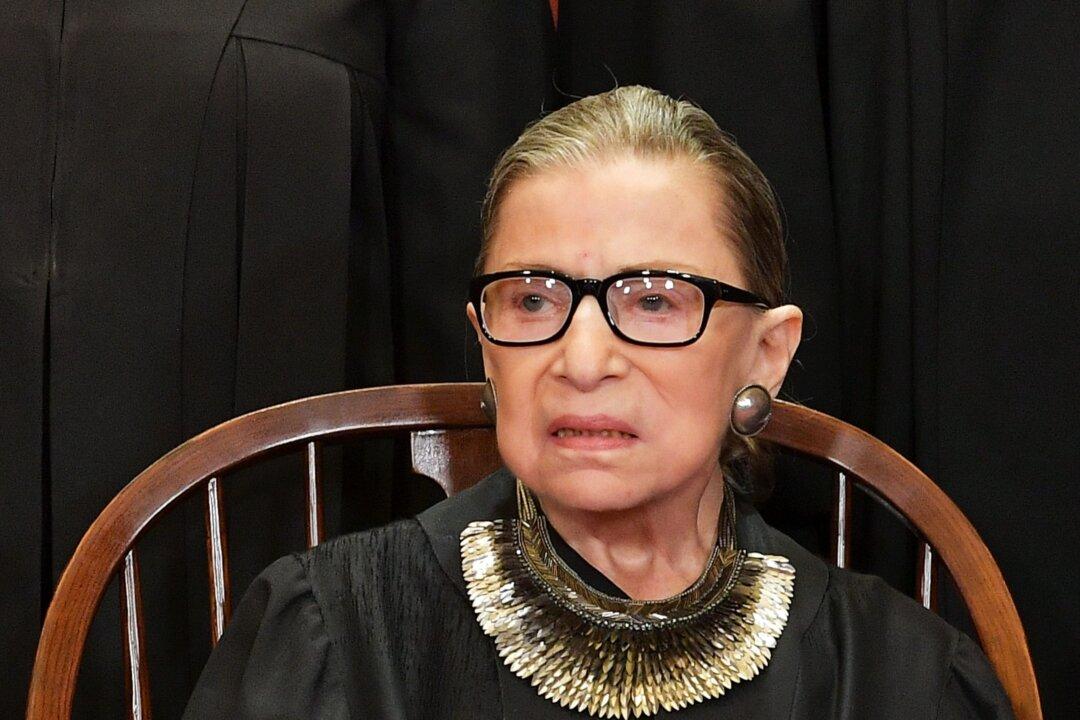
Associate Justice Ruth Bader Ginsburg poses for the official photo at the Supreme Court in Washington, on Nov. 30, 2018. Mandel Ngan/AFP
Supreme Court Justice Ruth Bader Ginsburg has returned to the bench eight weeks after undergoing lung cancer surgery.
The 85-year-old justice joined her eight colleagues for a scheduled one-hour argument in a case involving the U.S. Postal Service on Feb. 19.




